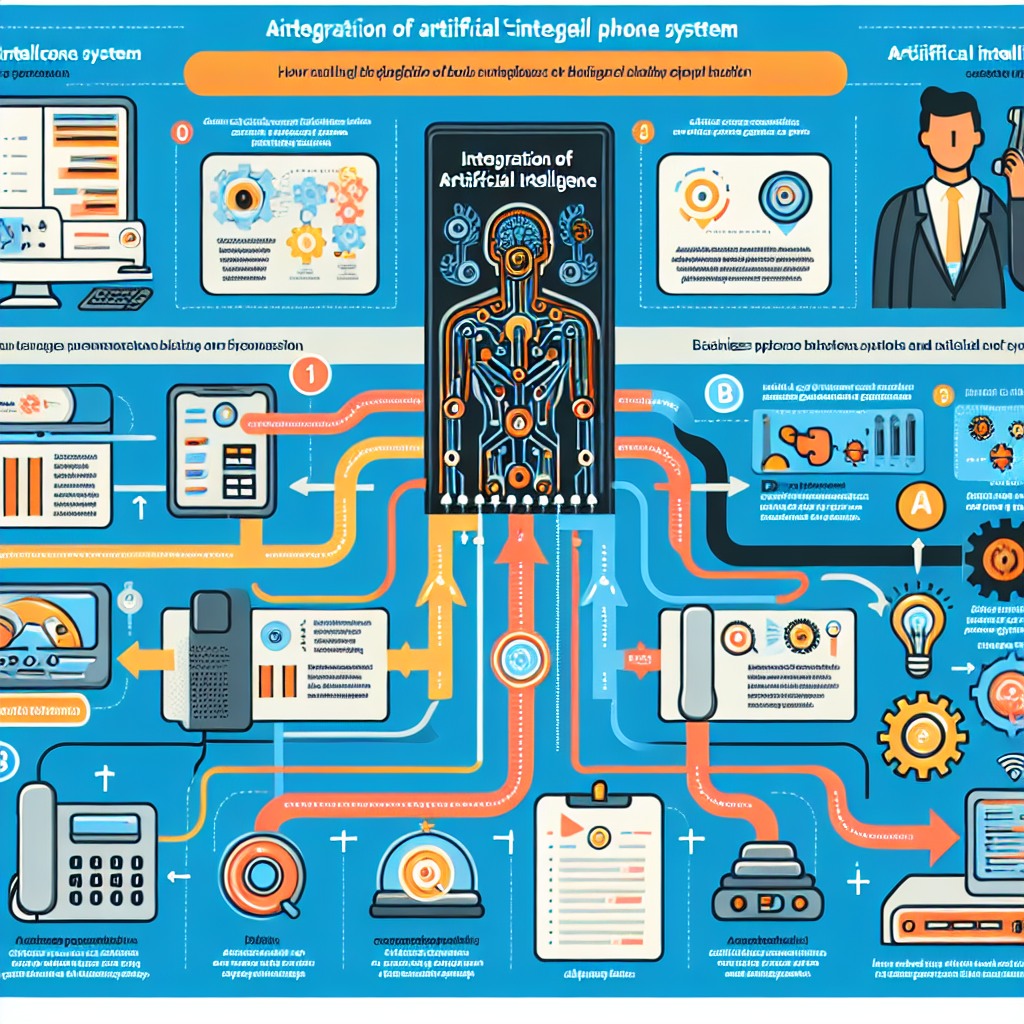
Welcome to the innovative world of Voice-Based AI Upselling. In recent years, artificial intelligence (AI) has taken significant strides in revolutionizing various industry sectors, and the sales sector is no exception. One of the most prominent examples of AI influence in sales is the development of voice-based product recommendation systems. These systems are designed not only to interpret and respond to customer queries but also to recommend products tailored to individual customers' needs and preferences.
So, what is Artificial Intelligence? In simple words, AI is the ability of a machine to simulate human intelligence processes, such as learning, reasoning, and self-correction. One of the most significant examples of AI-based systems in today's world is voice assistants; they have become an integral part of our everyday lives. These smart devices, powered by advanced machine learning algorithms, can comprehend human languages, making them capable of understanding and processing user requests.

Now, let's delve into the essence of voice-based AI upselling. When you interact with a voice-based AI system during a sales call, the AI analyzes your preferences and requests in real-time. It uses this information to suggest products that suit your preferences, thereby enhancing your shopping experience and boosting the sales process's efficiency.
Upselling is a common sales strategy, and AI has just taken it to a whole new level. Given the right training, AI models can predict users' needs and preferences based on their input and provide relevant product suggestions. This AI-powered upselling process not only offers a personalised shopping experience but also increases revenue for the company.
To sum up, voice-based AI technology has opened endless possibilities in the realm of sales. Today's innovative applications are testimony to the fact that the future of voice-based product recommendations is here to stay, significantly impacting sales strategies in an era driven by digitization and automation.
In the rapidly evolving world of phone sales, Artificial Intelligence (AI) has become instrumental in identifying profitable upselling opportunities. Voice-based product recommendations have emerged as a powerful tool, revolutionizing the way businesses interact with their customers and drive sales. By leveraging intricate AI neural networks and sophisticated machine learning algorithms, organizations are now able to deliver personalized recommendations like never before.
AI-powered systems track customer interactions meticulously, capturing important data points such as product preferences, buying patterns, and frequency of purchases. Besides, these systems also analyze speech patterns minutely, providing invaluable insights into the customer's state of mind during a call, their immediate needs, and potential long-term requirements.
The collected data is then fed into the AI algorithms, which churn out remarkably precise product recommendations. Based on the customer’s past purchase history and current dialogue, these AI-led systems identify upselling opportunities most likely to strike a chord with the customer, increasing the chances of a successful upsell exponentially. For instance, if a customer has repeatedly expressed interest in premium products, the AI system can recommend top-tier options during subsequent interactions, creating a personalized and seamless shopping experience.
At the heart of such technology are neural networks that intelligently mimic human brain functions. They decode complex speech patterns, discern subtle nuances in customer interactions and, over time, learn to predict customer preferences with impressive accuracy. This leap from reactive to proactive customer service has given businesses a distinct edge in a fiercely competitive market.
By harnessing the power of AI the phone sales industry is equipping itself with data-driven strategies to reach customers with the right product at the right time. The technology’s potential to enhance sales and customer satisfaction is enormous and largely untapped, primed for businesses to explore and make the most of.
Advancements in artificial intelligence have opened new avenues for businesses to enhance their sales by leveraging the power of real-time voice-based product recommendations. This addition to phone sales has not only facilitated up-selling but also provided a personalized shopping experience for potential buyers. Artificial Intelligence can seamlessly integrate with existing phone systems and provide innovative solutions to augment sales targets.

This integration process requires developing the AI system and configuring it with your enterprise's phone system. Advanced AI platforms, such as Dialogflow or Amazon Lex, can create virtual agents that process inputs from phone calls and provide voice-based product recommendations. These local agents can be trained on a company's inventory and be programmed to suggest related products that could be of interest to your customers. This is an efficient implementation of AI-powered up-selling.
Despite the myriad advantages, integration of AI with phone systems poses challenges. One major challenge is the correct interpretation of voice inputs from customers. For successful integration, AI agents must be trained rigorously on variances of tone, pitch, dialect, language, and diction. Another significant challenge is ensuring customer data privacy. Leveraging AI functionality necessitates handling of sensitive customer information such as credit card details and phone numbers. Therefore, securing this data is of paramount importance.
On the bright side, these challenges have feasible solutions. For voice interpretation, it is important to use sophisticated speech recognition systems, which can efficiently process and understand varied voice language data. As for data security, businesses must apply strict data protection policies and measures to ensure that all data processed by AI is secure.
To conclude, integrating AI-based product recommendations in your phone sales process is an innovative move that can elevate your sales numbers while giving your customers an enriched shopping experience. Despite the technical complexities of such an integration, the considerable potential upside they promise for sales makes the endeavour worthwhile.
Case Studies: Success Stories and Metrics
In the vast world of sales, numerous enterprises have harnessed the power of AI-powered voice-based product recommendations to boost their upselling endeavors. By providing intelligent, customized, and timely suggestions, these systems have propelled companies to new heights of success.
One such company is Amara E-Commerce Ltd. Post-implementation of AI voice-based recommendation, they reported a 22% increase in upselling within the following quarter. Alongside sales growth, the company found its Customer Satisfaction Score (CSS) increasing by 33% as a testament to the effectiveness and smoothness of the AI-enabled transactions. Read about Amara's success story.
Next, we turn our focus to ProFlowers. Testing the waters with AI in phone sales, this renowned florist was surprised to witness a 20% boost in its Average Order Value (AOV). Having an analytics-driven conversation system provided their agents with better upselling opportunities, contributing to this impressive growth. Learn more about it in their official release.
Moving on, we have Tesla, who harnessed AI to provide personalized recommendations to their potential customers. This resulted in a surge in successful upsells by 18% within the first two months of implementation. Coupled with this, Tesla also observed a significant drop in decision time—a key indicator of customer ease and satisfaction. Find their testimonial here.
These success stories are but a glimpse into the potential held by AI when it comes to reshaping the business landscape. It is evident that voice-based product recommendation algorithms can play a key role by not only improving sales but also enhancing the customer experience significantly. In the age of personalization, this could well be the differentiator that sets a company apart from its competition.
Stepping into the realm of Voice-Based Product Recommendations is certainly an exciting venture. As a company, the introduction of AI-Powered Upselling in phone sales can result in a steep increase in revenues and customer satisfaction. However, there are a few considerations and best practices to keep in mind to ensure the smooth, legal, and efficient implementation of this cutting-edge technology.
First and foremost, user privacy is of paramount importance. Whenever implementing technologies that collect and analyze customer data, it's essential to make sure the GDPR standards are met adequately. This not only ensures compliance with privacy laws but also fosters trust in your clientele.

Next, customization is key when it comes to AI responses. The AI system should be capable of being tuned to your specific business needs and, more importantly, customer expectations. The tone, language style, and delivery of your AI can make or break customer experience, making customization a critical aspect of deploying Voice-Based Product Recommendations.
Lastly, one of the bigger challenges is training your AI to comprehend the nuances of human communication. Misinterpretations or lack of understanding can lead to decreased customer satisfaction, so it's essential to invest in technology that excels in Natural Language Processing (NLP). Understanding Natural Language Processing is a great resource to get started with this.
Moving forward, ensuring a harmonious integration of AI into your phone sales isn't an insurmountable task. By keeping these best practices in mind and continuously learning and adapting, your company can reap the numerous benefits these technologies offer, while turning every call into a productive interaction.
The world of telephony and sales is undergoing transformational change, led by the rapid advances in Artificial Intelligence (AI). This interplay is driving the creation of effective voice-based product recommendation systems, which utilize AI to power upselling in phone sales.
In the face of this innovation, tech futurists foresee a dramatic paradigm shift for sales strategies across different sectors.
AI voice technologies are predicted to enhance the efficiency and productivity of the sales process. These sophisticated technologies will be capable of accurately understanding and interpreting customer preferences, better than any human sales representative. This, in turn, will empower businesses to offer highly personalized product recommendations, thus improving customer engagement and enhancing conversion rates.
Another significant facet of these developments is speech recognition, which is expected to advance at an exponential rate. Current systems are already capable of transcribing spoken language with remarkable precision. In the near future, AI models may be capable not only of understanding the meaning behind words, but also inferring sentiment and emotional context from conversations.
Furthermore, experts speculate that these AI-powered telephony systems would greatly improve the accessibility and inclusivity of phone sales. For example, customers who have different accents, dialects, or who use sign language could find their interactions with sales representatives significantly improved.
In conclusion, the integration of AI into telephony indicates an exciting future for businesses and customers. Voice-based product recommendations will redefine the sales landscape, driving up business metrics while simultaneously enhancing the customer experience. Stepping into this new era, businesses must stay informed and adapt to make the most of these technological advancements.
Start your free trial for My AI Front Desk today, it takes minutes to setup!








